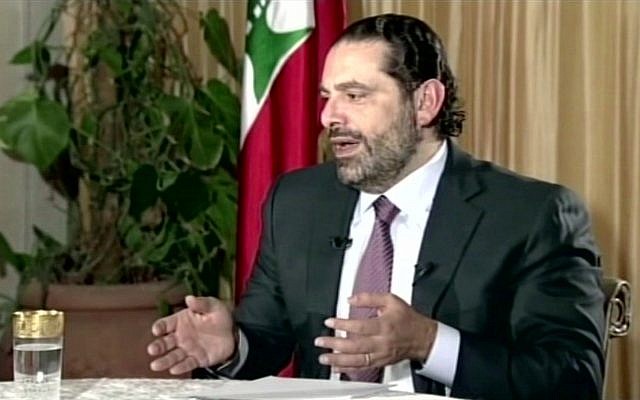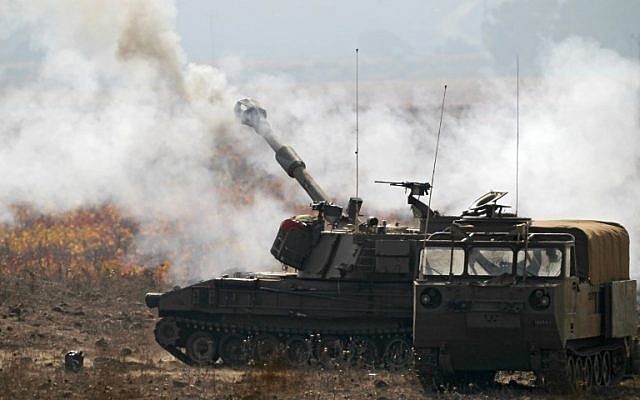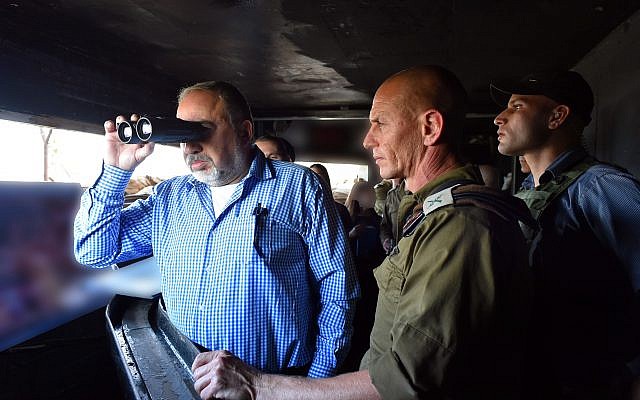Palestinians: Arab Rulers are Traitors, Cowards, Gatestone Institute, Khaled Abu Toameh, December 14, 2017
Almost every Palestinian protester interviewed in the past few days about the Trump announcement spoke also of the “weakness” and “cowardice” of the Arab and Islamic heads of state.
Welcome to the Palestinian mindset, where an Arab leader who talks about peace with Israel is a traitor, while an Arab leader who talks about destroying Israel or launching rockets at it, like Saddam Hussein, is a “hero.”
Meanwhile, it seems that the Palestinians are disgusted not only with the Arab leaders, but also with their own president, Abbas. A Palestinian public opinion poll published this week showed that 70% of the Palestinians want Abbas to resign. Three months ago, 67% of the Palestinians interviewed for another poll said they wanted Abbas to resign. The latest poll found that Palestinians favor more hardline leaders such as Fatah’s imprisoned leader, Marwan Barghouti, and Hamas leader Ismail Haniyeh.
*************************************
The decision to boycott a visit later this month by US Vice President Mike Pence comes in the context of absorbing the anger of the street. Abbas and his Palestinian Authority have also made it clear that they no longer consider the Trump administration an “honest” and “unbiased” broker in any peace process with Israel. As such, the Palestinian Authority leadership announced that it will reject any peace plan proposed by the Trump administration, even if the plan gains the support of Arab countries such as Saudi Arabia and Egypt.
The Palestinian strategy now is to work hard to thwart any peace plan coming from the Trump administration. The Palestinians are convinced that Crown Prince Mohammed bin Salman and other Arab leaders are cooking up a new “conspiracy” behind their backs — with the aim of “liquidating” the Palestinian cause by imposing an acceptable solution on them. This, of course, has nothing to do with Trump’s announcement on Jerusalem. This has been the Palestinian position even before Trump made his announcement, and it is unlikely to change after.
The question now is: How will the Arab regimes respond to this latest charge of fratricide leveled against them by their Palestinian brothers?
Once again, the Palestinians are disappointed with their Arab brothers.
A declaration of war on the US, in the Palestinians’ view, would have been the appropriate response to US President Donald Trump’s December 6 announcement recognizing Jerusalem as Israel’s capital.
For the Palestinians, the anti-US demonstrations that took place in some Arab countries such as Egypt, Jordan, Tunisia, Iraq and Lebanon were a welcome development.
But the protests have evidently failed to satisfy the appetite of the Palestinians, who were banking on the Arab heads of state and governments to take more drastic measures against the US.
The Palestinians are not expecting the Arab and Islamic armies to march on the White House or bomb New York and Los Angeles.
All they have gotten so far from the Arab and Islamic leaders and governments are demonstrations on the streets and statements of condemnations. Moreover, it does not look as if the Palestinians should be expecting more from their Arab and Muslim brothers.
The sense of let-down on the Palestinians’ part is large: the streets of the West Bank and Gaza Strip are rising with chants labeling the Arab and Muslim leaders and regimes as “traitors” and “puppets” in the hands of Israel and the US.
Almost every Palestinian protester interviewed in the past few days about the Trump announcement spoke also of the “weakness” and “cowardice” of the Arab and Islamic heads of state.
Welcome to the Palestinian mindset, where an Arab leader who talks about peace with Israel is a traitor, while an Arab leader who talks about destroying Israel or launching rockets at it, like Saddam Hussein, is a “hero.”
Saudi Crown Prince Mohammed bin Salman, who is rumored to be working with the Trump administration on a new peace plan to solve the Israeli-Palestinian conflict, is being dubbed a “traitor” and “collaborator” by many Palestinians. Likewise, Egypt’s President Abdel Fattah Sisi is being accused by many Palestinians of being too soft on Israel and the US and in collusion with the Trump administration.
Hassan Nasrallah, on the other hand, the secretary-general of the Iranian-backed Hezbollah, who has called for a new intifada against Israel, is being hailed as a “hero.” So are his Iranian masters.
A Bahraini Interfaith group that visited Israel with a message of peace and conciliation was met with Palestinian anger. The Palestinians accused the Bahraini delegation of promoting “normalization with the Zionist entity.”
When Palestinians heard that the members of the Bahraini group might visit the Gaza Strip, they waited for them with eggs and shoes to throw at them at the entrance to the Gaza Strip. The Bahraini delegates later denied that they had planned a visit to the Gaza Strip. However, this did not stop Palestinian protesters from condemning the Bahrainis.
Echoing the embitterment towards the Arab “impotence” and “weak” response to Trump’s announcement, Palestinian Authority (PA) President Mahmoud Abbas said that statements issued by governments and leaders were inadequate in the extreme. In a message to the Arab Parliament, Abbas expressed disappointment that the Arab and Islamic countries did not take tougher measures in response to Trump’s announcement.
For Abbas, the condemnations alone were “meaningless”. At a minimum, he stated, the Palestinians were expecting that Arabs and Muslims would throw the US ambassadors out of their countries, shut down US embassies, cut off their diplomatic relations with the US, or boycott US officials and delegations and goods.
“Rejecting or saying that the [Trump] decision is null and void is insufficient,” Abbas said. “We expect a series of measures and steps that would rise to the level of the event.”
The reaction of the Palestinian street to the Arab and Islamic “apathy” has been even stronger, especially after the meeting of the Arab League foreign ministers in Cairo to discuss the Trump announcement.
“As far as I’m concerned, all the Arabs are not worth two shekels,” commented a Palestinian interviewed in Ramallah.” Another Palestinian remarked: “There are no Arabs or Muslims left.” A third Palestinians said, “I find it strange that there are still some Arabs who expect anything good to come out of the Arab league. When will the Arabs wake up?”
“Anyone who expects the weary Arab regimes to defend Jerusalem is living under an illusion,” said Palestinian political analyst Mohammed Ismail Yassin. “All one should expect from these regimes is more failure. The Arab regimes are busy shedding the blood of their people.”
Meanwhile, it seems that the Palestinians are disgusted not only with the Arab leaders, but also with their own president, Abbas. A Palestinian public opinion poll published this week showed that 70% of the Palestinians want Abbas to resign. Three months ago, 67% of the Palestinians interviewed for another poll said they wanted Abbas to resign. The latest poll found that Palestinians favor more hardline leaders such as Fatah’s imprisoned leader, Marwan Barghouti, and Hamas leader Ismail Haniyeh.
The Palestinians are fed up with Abbas because, among other things, they believe he is not being tough enough with Israel. Many would like to see Abbas cancel the Oslo Accords with Israel and openly endorse the “armed struggle.” They also want him to halt security coordination with Israel. In an attempt to appease the Palestinian street, Abbas and his top officials have resorted to inflammatory rhetoric against Israel and the Trump administration.
The decision to boycott a visit this month by US Vice President Mike Pence comes in the context of absorbing the anger of the street. Abbas and his Palestinian Authority have also made it clear that they no longer consider the Trump administration an “honest” and “unbiased” broker in any peace process with Israel. As such, the Palestinian Authority leadership announced that it will reject any peace plan proposed by the Trump administration, even if the plan gains the support of Arab countries such as Saudi Arabia and Egypt.

Mahmoud Abbas and his Palestinian Authority have made it clear that they will reject any peace plan proposed by the Trump administration. Pictured: Abbas speaks during the U.N. General Assembly on September 20, 2017. (Photo by Kevin Hagen/Getty Images)
The Palestinian strategy now is to work hard to thwart any peace plan coming from the Trump administration. The Palestinians are convinced that Crown Prince Mohammed bin Salman and other Arab leaders are cooking up a new “conspiracy” behind their backs — with the aim of “liquidating” the Palestinian cause by imposing an acceptable solution on them. This, of course, has nothing to do with Trump’s announcement on Jerusalem. This has been the Palestinian position even before Trump made his announcement, and it is unlikely to change after.
The Palestinians have placed themselves on a collision course not only with the US, but also with the Arab world. The question now is: How will the Arab regimes respond to this latest charge of fratricide leveled against them by their Palestinian brothers?
Khaled Abu Toameh, an award-winning journalist, is based in Jerusalem.











Recent Comments